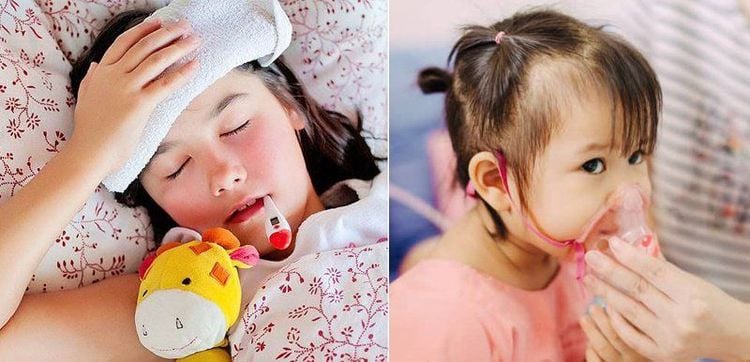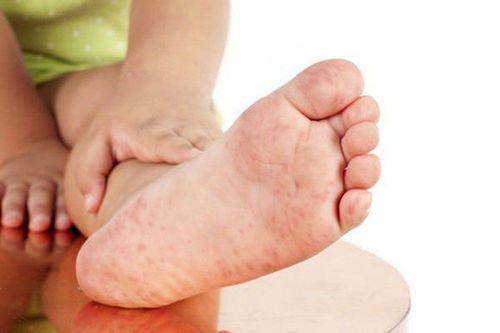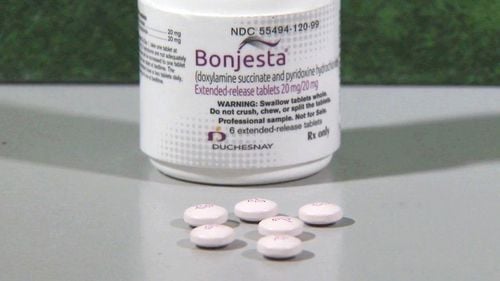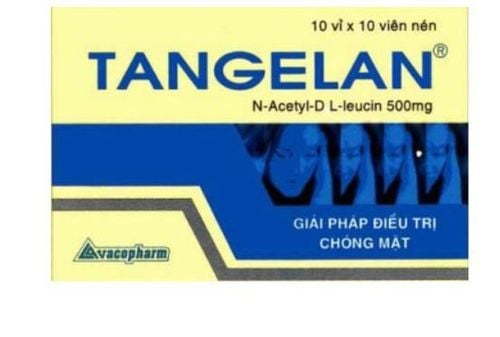This is an automatically translated article.
Herpangina is a disease caused by a virus, common in children and has some typical manifestations such as small sores, sudden fever, sore throat, headache... and some other similar symptoms. like hand foot and mouth disease.
1. Learn about Herpangina
Herpangina is a disease caused by the Enterovirus virus (the same agent as hand, foot and mouth disease). This is a group of viruses that usually affect the digestive system mainly, but can also spread to other parts of the body.
Normally, the body's immune system produces antibodies to fight viral infections. However, in children and infants there is less ability to produce appropriate antibodies because they are not fully developed. This is the reason why Herpangina is common in this group of people.
2. Common Symptoms of Herpangina
Herpangina symptoms will usually appear about 2 - 5 days after the child is exposed to the Enterovirus virus. Symptoms may vary from patient to patient, however, the most common are the following:
Sudden fever Sore throat Pain Headache Swollen lymph nodes Anorexia, loss of appetite Difficulty Swallowing Drooling or vomiting in infants In addition, small sores appear on the back of a child's mouth and throat for about 2 days after the onset of the infection. The sores tend to be light gray and have a red border, but are not cause for concern as they usually heal on their own within 7 days.

Sốt đột ngột là biểu hiện của bệnh Herpangina
3. Is Herpangina dangerous?
In most cases, Herpangina clears up on its own in about 7 to 10 days. In a very small number of cases, Herpangina causes serious complications. Therefore, if the baby is diagnosed with this disease, parents do not need to worry too much, but still have to take care of the baby properly.
Need special attention, if the baby has one of the following symptoms, the baby needs to be taken to the hospital immediately:
High fever 41 degrees Celsius, fever persists and does not subside. Baby has mouth sores, sore throat that lasts more than 5 days with no signs of improvement. The baby shows symptoms of dehydration such as dry mouth, dry eyes (expressed as lack of tears), fatigue, decreased urine output, dark urine, sunken eyes... It can be said, common complications. The most important part of Herpangina is dehydration and this is a dangerous condition for anyone. Therefore, parents need to pay attention to the proper care of the baby during the illness and pay attention to regularly replenishing the baby's water to prevent this complication.
4. How is Herpangina diagnosed?
Ulcers caused by Herpangina often have very typical features and it is rare for any other pathology to cause similar signs. Therefore, doctors can usually diagnose this condition by physical examination and sores. In addition, some other symptoms and medical history will also be considered. In this case, special diagnostic testing is not really needed.
5. Herpangina treatments
Up to now, there is no specific treatment for Herpangina disease. The main goals of treatment often revolve around improving and controlling symptoms, especially pain. Depending on factors such as age, symptoms, tolerability ..., each patient will be recommended different specific treatment plans.

Điều trị bệnh Herpangina theo chỉ định của bác sĩ
Since Herpangina is a viral disease, antibiotics will not be an effective form of treatment, but antivirals specific to Herpangina have not been studied. Therefore, patients should not arbitrarily buy these drugs without a prescription from a doctor.
Usually, for Herpangina , doctors will probably recommend some of the following medicines.
Ibuprofen or Acetaminophen These drugs belong to the group of pain relievers, which can improve any body discomfort and at the same time have a fever-reducing effect. Do not use aspirin to treat symptoms of a viral infection in children or adolescents because it can lead to Reye's syndrome, a potentially life-threatening condition that causes swelling. Sudden inflammation in the liver, brain.
Local anesthetics Some anesthetic drugs such as Lidocaine can help relieve sore throat, mouth pain... related to Herpangina.
Some home remedies Besides over-the-counter pain relievers and local anesthetics, to speed up the recovery process, you can use some of the following methods.
Salt water mouthwash daily: You can mix a mouthwash with warm water and salt, let your baby gargle 2-3 times a day. This will aid in reducing pain and sensitivity in the mouth and throat area.
Increase hydration: The most important thing to maintain and enhance a patient's health during illness is to drink water regularly during recovery, especially milk and water. In addition, it is necessary to avoid hot drinks, carbonated drinks ... because these drinks will make symptoms more severe and worse.
Pale diet: It is necessary to eliminate spicy, crunchy, salty foods, fried foods or acidic foods to limit the severity of the pain. Instead, the patient should eat soft, bland foods... until the ulcer heals.
Wash your hands often: Hand washing is a very important activity to prevent the virus from spreading. Both children and adults need to wash their hands properly and regularly. It can be said that Herpangina so far has not caused significant dangerous complications and can heal on its own in about 7-10 days. Therefore, the patient should be well cared for during the recovery period to accelerate the healing process.
Vinmec International General Hospital with a system of modern facilities, medical equipment and a team of experts and doctors with many years of experience in medical examination and treatment, patients can rest assured to visit examination and treatment at the Hospital.
Please dial HOTLINE for more information or register for an appointment HERE. Download MyVinmec app to make appointments faster and to manage your bookings easily.
SEE MORE
Tips on vaccinations to protect children for a lifetime Hand - Foot - Mouth disease in children: how to recognize and prevent upper respiratory tract infections in children are dangerous?













